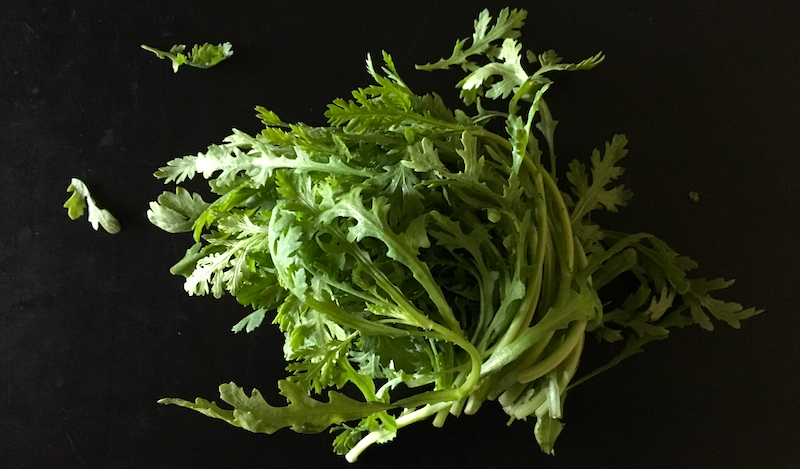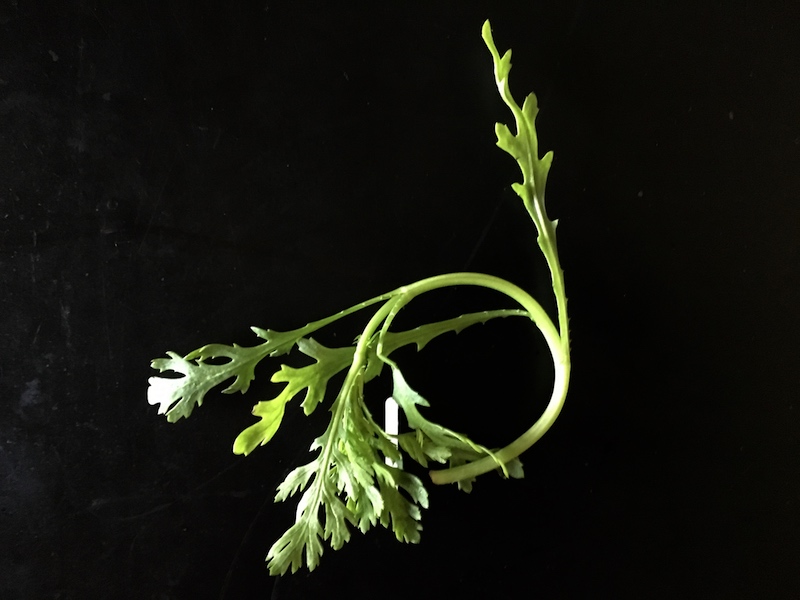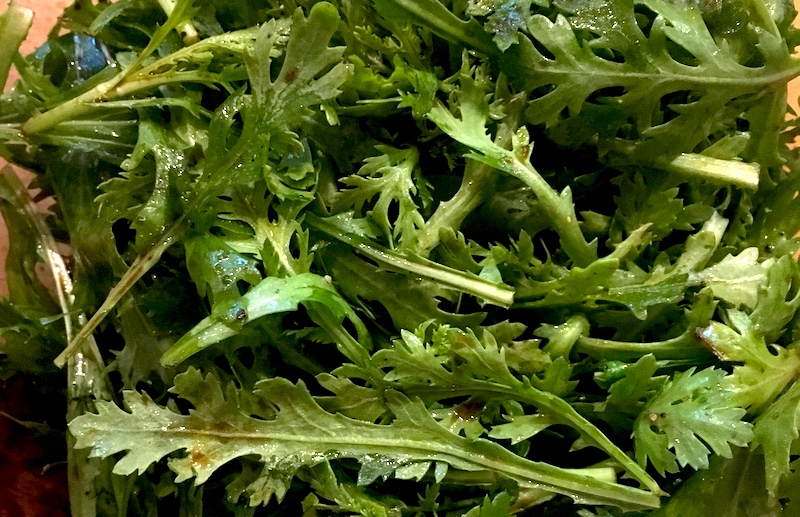
In Season: Shungiku, or Chrysanthemum Greens
When wandering through the stalls at the farmers' market or in the aisles of my local greengrocer's, I pick up the usual salad greens and vegetables (including those for my dogs), but I'm always drawn to any unusual seasonal gems that might be tucked into the displays. Chicories? Garlic shoots? Espelette peppers? Any new raabs?
On one of my last trips to Rubinette Produce, I ran across something called "shungiku" grown by Katie Boeh at Fox Bear urban farm, who last year expanded her offerings through a collaboration with Willow Bar Farm on Sauvie Island. (Check out Fox Bear's impressive CSA offerings!)

Shungiku, while it sounds exotic, is actually the leaves from a type of chrysanthemum, Glebionis coronaria, a native of the Mediterranean that became a popular part of Japanese cuisine. The young leaves of the spring plant are often used fresh in salads, but it is sturdy enough to stand up to being blanched and chopped in dishes like sukiyaki. (I'd probably mix it into pasta dishes or layer it in a quiche, or maybe stir it into risotto.)
My copy of Japanese Cooking: A Simple Art, by Shizuo Tsuji, effuses that "its fragrance and distinct, light, astringent flavor harmonizes with meat or fowl, onion, and other vegetables," but warns to "take care not to overcook in one-pot dishes—a minute or two in the seasoned broth is enough. If overdone, chrysanthemum leaves tend to develop a bitter aftertaste." When purchasing, Tsuji advises looking for bright green leaves and stalks that are strong and perky. If they're showing buds or flowers, they're too old and may be tough.

Janis Martin, former owner of the idiosynchratic Tanuki izakaya—now chef at East Glisan Pizza Lounge—said that for a hot weather refresher, place a few sprigs of shungiku in a large pitcher of water along with a sprig of Chinese celery and a strip of yuzu rind (or lemon, if yuzu is not available). She lets it infuse at least three hours and serves it ice cold. (Thanks, Janis!)
Only available for a very short season in the spring, it's a plant that gardeners should check out for their spring gardens. Organic seeds are available from Andrew Still and Sarah Kleeger of Adaptive Seeds in Sweet Home, whose seeds are bred specifically to thrive in the maritime climate of the Pacific Northwest. Even better, they're dedicated to making available public domain, open pollinated (OP) seed, none of which are genetically modified (GMO) or grown with chemical fertilizers, herbicides or pesticides.
So get out there and find your own hidden gems, and maybe a new favorite garden green!